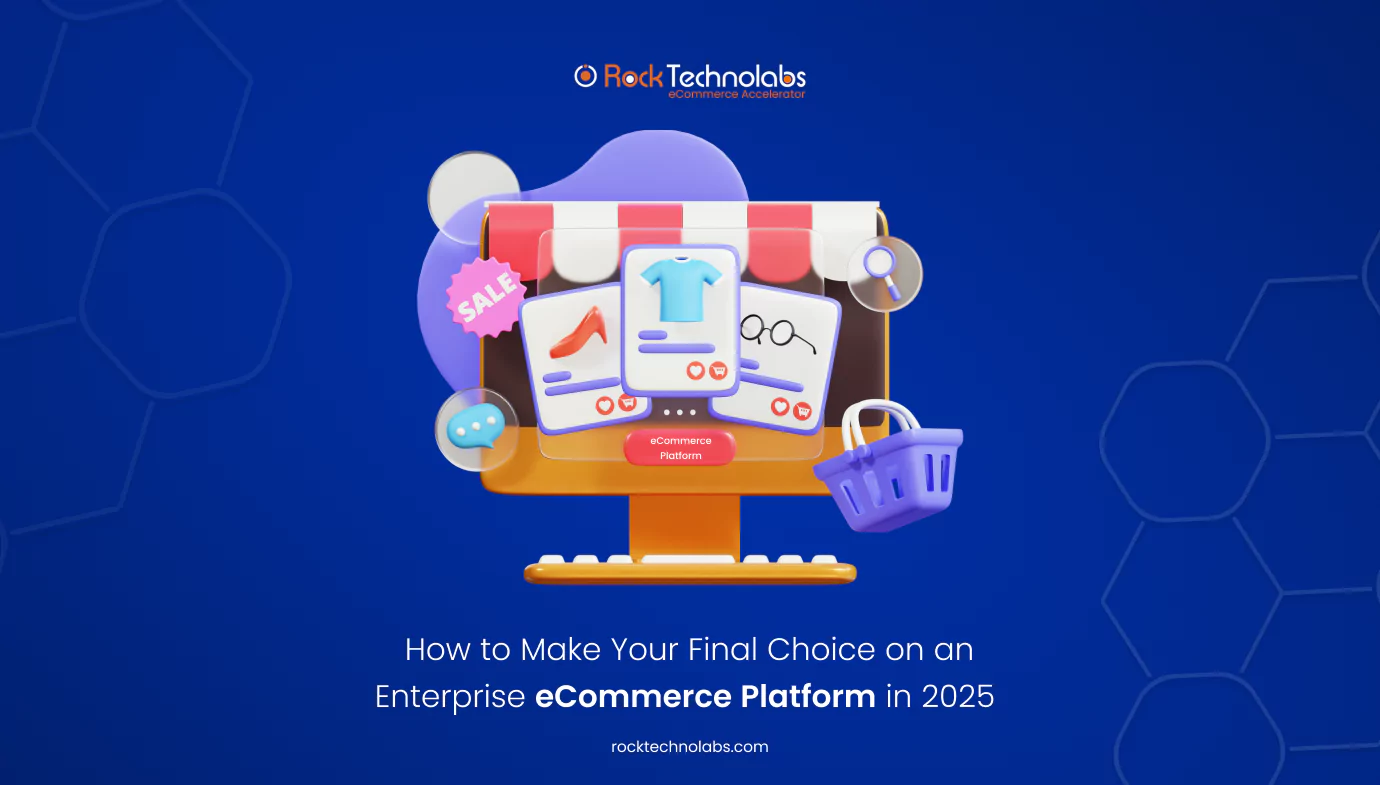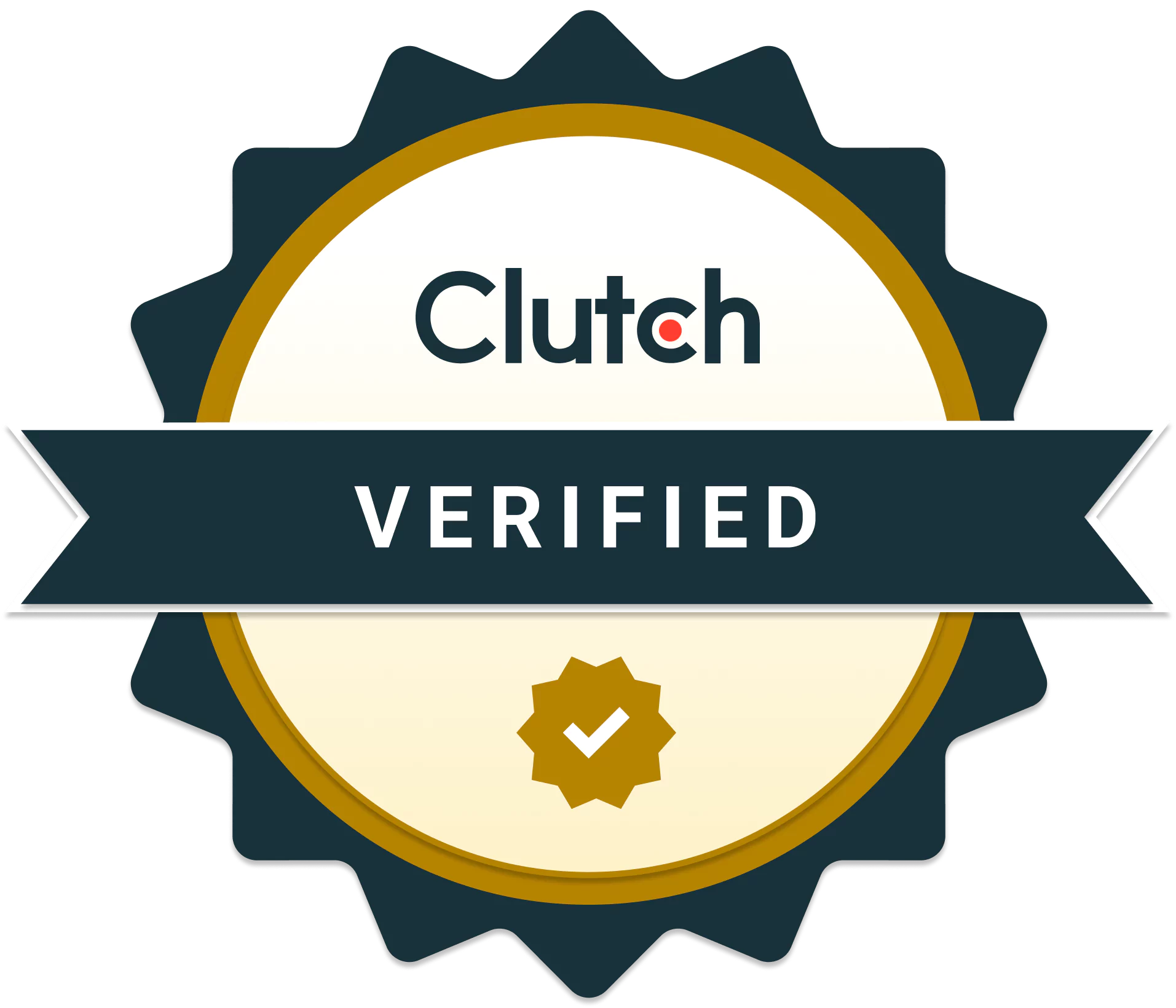How to Make Your Final Choice on an Enterprise eCommerce Platform in 2025

We are sure that as a merchant you know the importance of serving customers online in the best and right way as per what is currently going on in demand; however, this not only involves offering the best products or services it also encompasses the deliverability where choosing the right enterprise eCommerce platform or opting for Magento development services is a decision that directly influences your business’s revenue, operations, and growth.
A reliable enterprise eCommerce solution should be scalable and integrate seamlessly across all functions—from inventory to customer relationship management. Not only this it has the ability to have enough customizable options that can easily meet your unique business needs.
Moreover, we have noticed that on one side merchants face the problem of choosing the right platform with themes like Magento 2 hyva theme or other alternatives: user-friendly, scalable to match your business’s size, and fairly priced. On the other, there’s the risk of choosing poorly and regretting it later. So how we can leave you with this kind of headache as such an important decision shouldn’t be taken lightly. Plus, while pricing matters, it shouldn’t be the only factor guiding your choice.
Yes, it’s a lot to consider—that’s intentional. By doing your homework now, you can confidently invest in a platform that aligns with your business needs. This means evaluating features, types, and everything else that today’s leading platforms offer, ensuring you make the best choice for the long term.
Let’s dive into what top platforms are doing and how they’re addressing today’s trends and challenges, and why Magento development services play a big role when opting for an e-commerce platform.
5 Advantages of Enterprise-Level eCommerce Platforms
1. Scalable
Enterprise platforms are built for growth. They handle expanding catalogs, personalized pricing down to individual customers, and massive traffic without losing performance. Their scalability ensures your platform grows alongside your business, supporting expansion without limitations.
2. Flexible
Unlike rigid SME platforms, enterprise solutions adapt to how your business operates—not the other way around. They work with traditional and headless architectures, offering flexible deployment options and tailored implementations to suit your unique needs.
3. Connective
Enterprise eCommerce platforms excel in integration. With robust APIs and rich ecosystems, they connect seamlessly with the tools, apps, and software you already use. Open-source options like Magento offer even greater connectivity if a merchant is opting for Magento development services, allowing businesses to modify code as needed to create custom solutions without complex workarounds.
4. Customer-Focused
Customer experience is at the heart of enterprise platforms. They enable immersive digital experiences, support chatbots, live chat, and ticket management, and include advanced relationship management tools. Customers can even customize access and permissions within their accounts, aligning with their organizational hierarchy for a tailored experience.
5. Secure
Enterprise platforms deliver top-tier security, including Level 1 PCI compliance for payment data and robust encryption methods. Sensitive data like passwords are stored as irreversible hashes, and platforms offer multi-layered security with customizable permissions at user, brand, or global levels. You can make your store more secure with Magento development services if your chosen platform is Magento.
Enterprise eCommerce platforms don’t just facilitate sales—they transform the way businesses operate, helping them scale, adapt, and thrive.
Types of E-commerce Platforms
When building a vendor-specific website, you’ll need to choose the right e-commerce platform for your needs. Below are some common types to consider:
1. Software as a Service (SaaS)
If we talk about SaaS, these hosted in cloud platforms don’t require downloading and installation on a computer and can be accessed via an internet browser. These e-commerce platforms are reliable known for their ready-made web store solutions, e-commerce SaaS vendors cover their hosting, backups, updates, and security provisions.
While easy to use, SaaS platforms provide less flexibility and control over your site. Examples include Shopify, 3dcart, and BigCommerce.
2. Open-Source Platforms
Open-source platforms give you access to the platform’s source code, allowing complete customization. However, you’ll handle updates, security, and compliance on your own.
Some are hosted in the cloud, while others require you to manage hosting on your own server. This option offers more control but demands technical expertise or a developer. Examples include Drupal, Magento, and OpenCart. Moreover among them, the most popular one is Magento which also increases the demand for Magento development services among merchants, besides this, nowadays Magento 2 hyva theme is a big new trend in the e-commerce industry.
3. Platform as a Service (PaaS)
PaaS blends features of SaaS and open-source platforms. You maintain control over your site’s design and features while the provider takes care of hosting, updates, and security.
This option requires some technical knowledge or a developer’s help but spares you from managing the infrastructure. Popular PaaS platforms include Oracle CX Commerce and Magento Commerce.
4. Licensed E-commerce Software
With licensed software, you purchase the right to use the platform, often indefinitely. You’ll manage hosting, installation, and updates yourself, but the license usually includes some support and updates.
5. Headless Commerce Solutions
Headless commerce separates the e-commerce functionality from the website’s front end. You can add these solutions to an existing site, allowing you to control your content while leaving e-commerce management to the platform. Examples include BigCommerce and CommerceTools.
Must-Have Features When Choosing an E-Commerce Platform
1. Robust Catalog Management
A simple question – would you like to enter inside a garments shop where all the clothes are scattered all over the floor, this is what an e-commerce store looks like without proper catalogue management. A well-structured product catalogue is the backbone of your online store. For instance, a fashion e-commerce platform must enable size and color selection, while a platform catering to electronics might require detailed technical specifications.
Additionally, support for product bundles, variant management, cross-linking between product pages, and custom attributes will significantly enhance user experience and simplify inventory management. A robust catalogue empowers your store to cater to diverse customer needs while maintaining seamless operations.
2. Headless Commerce Capability
Platforms with headless capabilities like Magento 2 allow for custom front-end designs without disrupting back-end functionality, ensuring a modern and future-proof solution for growing businesses.
Moreover, there is one more term that is Magento headless (can be opted via Magento development services) which facilitates the development of mobile-optimized online stores by decoupling the front-end and back-end. Thus offering merchants unparalleled flexibility, scalability, and customization options.
3. Comprehensive E-Commerce Analytics
Even if you built an e-commerce store, how you would be able to satisfy the needs of your customers when you aren’t aware of it or how you would be able to offer a personalized experience without having enough data about your customers?
E-commerce analytics is a different and vast domain of e-commerce that involves various types of categories like customer segmentation, CRO, and inventory management, so it’s important to choose a platform with an integrated analytics dashboard to monitor key performance indicators (KPIs) such as sales trends, cart abandonment rates, and customer demographics which allow you to refine your strategies, and help in the informed decision-making process. If the built-in tools aren’t sufficient, ensure the platform supports integration with third-party analytics software like Google Analytics or Tableau for deeper insights.
4. Google Merchant Center Integration
Integrating with Google Merchant Center is crucial for expanding your reach as it helps you sync your store and product data with Google and makes the information available for both free listings and Google Shopping Ads. By doing so, you can generate tons of traffic for sales to your product, plus this will assist you in increasing visibility across search engines while attracting a broader audience. For businesses targeting international markets, this integration ensures your products appear in region-specific shopping results, providing a competitive edge.
5. Flexible Pricing Options
You are playing a game with extremely high stakes, no clear rules, and intense competition when you set the price for your e-commerce products. You have to understand that flexible pricing is a part of a dynamic pricing structure which is critical for running successful promotions, discounts, and location-based offers.
Your platform should allow you to easily implement flash sales, tiered discounts, and loyalty programs. Moreover, being able to set variable pricing based on region or shipping zones ensures that your pricing strategy aligns with your target audience while maintaining profitability. This flexibility not only attracts more customers but also builds trust in international markets.
6. Flexible Shipping and Fulfillment
Modern consumers expect fast and reliable delivery options. Your e-commerce platform should integrate with reputable shipping and logistics providers to offer next-day or even same-day delivery. Additional features like real-time tracking, flexible delivery slots, and automated shipping label generation simplify fulfilment processes. Platforms that support multi-warehouse inventory management and international shipping options like Magento can help you scale efficiently while meeting customer expectations across regions. It is advisable that for this purpose hiring a Magento development service provider will be a good choice.
7. Automated Tax and Accounting Compliance
For global businesses, staying compliant with tax regulations across different countries is non-negotiable. Your platform must support automated tax calculation based on location, VAT requirements, and applicable duties. Additionally, integration with accounting software simplifies bookkeeping and minimizes errors. This automation ensures seamless transactions while reducing the risk of penalties or legal issues.
8. Website Personalization
Today’s online shoppers demand tailored experiences. Look for platforms with built-in personalization features, such as AI-powered recommendation engines. These tools analyze customer behavior, browsing history, and purchase patterns to suggest relevant products, increasing conversion rates. Personalization also extends to dynamic banners, custom landing pages, and tailored email campaigns. Platforms that support advanced personalization help foster loyalty, improve user satisfaction, and ultimately boost sales.
9. Multiple Payment Gateway Support
Offering diverse payment options is essential to cater to a global audience. Beyond standard credit and debit card options, your platform should integrate with PayPal, Stripe, and region-specific payment gateways. This flexibility builds trust with local customers and reduces cart abandonment rates.
Conclusion
No matter what features or advantages an enterprise e-commerce platform offers, the most important thing is that you know what you want. This article is only written to guide you on what you have to look for while choosing a platform.
Moreover, among so many options Magento is the best one due to its open-source and highly customizable capability. With careful consideration and the right Magento development services, you can confidently create an online experience that drives growth, enhances customer satisfaction, and secures a leading position in the competitive eCommerce market. In addition to this, in case you need any help then Rock Technolabs Magento development service experts are always available to help you – +91 99047 96885.








